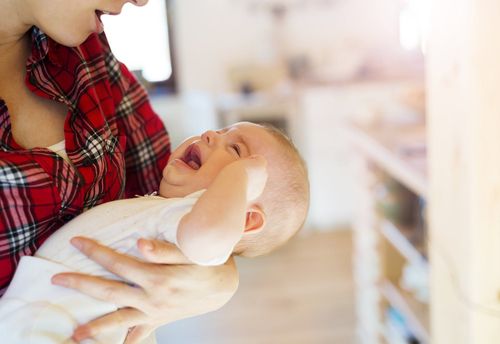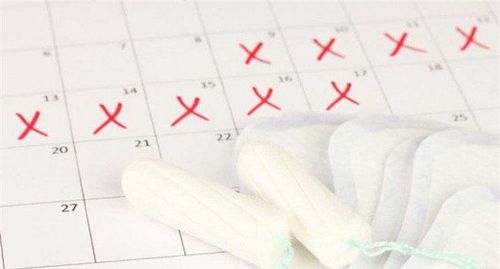This is an automatically translated article.
When girls turn 13 years old, there are many changes both physically and emotionally. At this age, the family still needs to follow up and support when necessary for the child to develop properly for his or her age.
1. Social communication in 13-year-old girls
13-year-old daughter spends more time texting than talking, family should not be too surprised. Since this is a period when children communicate less, at least with their families, they will present some ideas and views to you. A 13-year-old girl is already aware of what to say in certain situations. Not only words, children also begin to focus on body language and tone of voice.
Ways for parents to maintain communication with their 13-year-old daughter include:
Find a good time to talk. It could be while cooking together in the kitchen or walking on the street. Change the way you communicate to increase efficiency. Instead of asking "how are you today," share your day first. You can also challenge your child to share something that makes him or her feel bad, funny, or weird that just happened. Remember to listen while your child talks. When your daughter is ready to share, you should stop what you're doing and give her your full attention.

Ba mẹ cần nhiều thời gian lắng nghe trẻ nói chuyện
2. Physical development in 13-year-old girls
At the age of 13, children are going through puberty with many noticeable body changes such as:
Breasts grow fuller, wider hips Grow pubic hair Skin and hair start to produce more oil Height , weight, body fat increase Starting to have their first menstrual period As they feel their bodies are changing, they begin to become more self-aware of how they look and how they dress. Families can help children by:
Encourage children to be more active. Children don't have to play team sports, but simply walk the dog, help out in the garden, or play holly with friends. Dine like a family, intimate and affectionate. This will help your child make healthy food choices. Limit phone use to less than 2 hours/day. Be a good role model for children to follow. If you often say that you are fat or complain about your appearance, girls may start to do the same. Teach your kids that it's important to stay in shape. Don't pressure yourself with a specific measurement.

Hạn chế thời gian sử dụng điện thoại ở con gái 13 tuổi
3. Developing the right behavior in a 13-year-old girl
13 year old girls will spend more time with friends. Although girls at this age are building a sense of right from wrong, peer pressure can still influence a child's thinking.
13-year-old girls often want to test their limits by trying risky behaviors. That's why, even though children grow up as they should, they still need a lot of support. Families can help their child develop correct behavior by:
Offer to support the child. If your child can talk openly and honestly with you, there is a high chance that he will work with you to solve the problem. Always monitor the media your child uses and see if they agree. Make sure your child knows the dangers of drug use. The need to feel mature or fit may tempt girls to drink, smoke, or try drugs. Talk to your child about the dangers of doing so. Talk about sex. Children need accurate information to make good choices. In addition to sharing your values about sex, remember to talk about safe sex and sexual assault.
4. Emotional changes in a 13-year-old girl
Although your 13-year-old daughter is becoming more and more independent, she may have mixed feelings about "leaving" you. Don't be surprised if your child wants to spend some time with you, then be rude or angry the next time.
13-year-old girls are also often concerned with feeling good and self-doubt. The good news is that at this age, most kids do a good job of putting their feelings into words. You can help your child's emotional development by:
Involving your child in family decisions, activities, and events. Your support means a lot to your child, even though it may not be obvious. Child reassurance. Tell your child that teenage changes are a normal part of growing up. Children should not feel embarrassed or self-conscious. Help children earn their own money. At the age of 13, children can walk the dog or babysit the neighbors for money. Earning money will help children to be as free as they want and help them become more responsible.

Khi con gái 13 tuổi ba mẹ có thể giúp trẻ tự kiếm tiền
5. Learning ability in 13-year-old girls
13-year-old girls acquire a lot of knowledge through reading, writing and observing others. Many children begin to show intense interest in a certain topic.
Children are also becoming deeper thinkers, able to understand abstract concepts. They can also think through problems and see things from the other person's point of view. You can help your child develop learning abilities by:
Join parent groups to get an overview of your child's learning and playing at school. Build a homework schedule. Set a start time for each night. Make sure your child has a quiet, well-lit place in the house to study. If your child needs help, let him or her know you're ready to help. Monitor children's learning and play. Teach children to live in order. Help your child find ways to stay up to date with homework and class activities. Recognize signs of a learning disability such as unwillingness to write or read aloud, difficulty doing math problems, and slow recall of facts. If these signs persist, talk to your child's teacher. When your daughter is 13 years old, they already have independent, assertive thoughts and enter puberty, growing taller. Therefore, parents need to find out information about their child's development during this period to accompany and share with their children to help them be confident and develop the most comprehensively. Besides, parents also do not forget to let their children have regular health check-ups to control general health problems and intervene when necessary.
To improve service quality, now Vinmec International General Hospital offers a General Health Checkup package for children under 18 years old. This is a comprehensive health check-up package, including a full range of basic functional assessment services for children such as: ear, nose and throat examination, eye examination, assessment of liver and kidney function, heart, lung, blood test, and blood test. hepatitis and nutritional status of the baby.
Please dial HOTLINE for more information or register for an appointment HERE. Download MyVinmec app to make appointments faster and to manage your bookings easily.
Reference source: webmd.com













